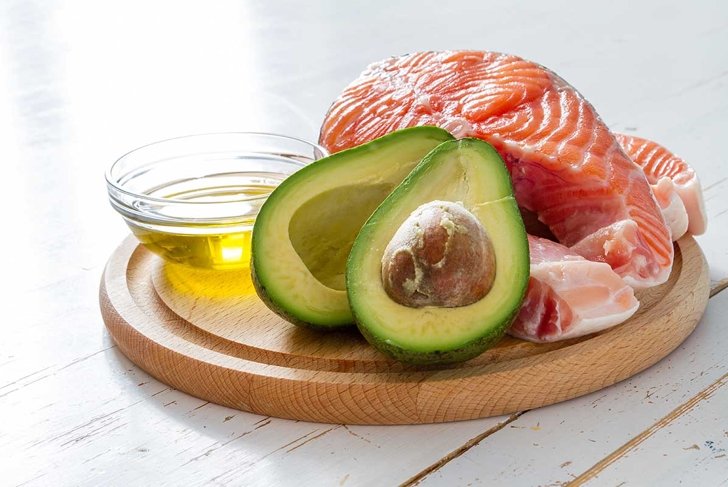
Unicorns. The lost city of Atlantis. A Spice Girls reunion tour featuring all the original members. Some myths are nice to believe in (even just a little!). But when it comes to heart health, getting to the truth can have a huge impact on the health of your cardiovascular system. Boost your heart IQ with the heart health facts below.
01
High blood pressure or cholesterol can go unnoticed

\”I’d know if I had high blood pressure or cholesterol … obviously!\” Reality check: High blood pressure and high cholesterol may not have any outward symptoms until you suffer a heart attack. You may not have any idea that your cholesterol or blood pressure is a concern until they’re measured, leaving you at risk without even knowing it.
See your health care practitioner to have your blood pressure and cholesterol checked. Discuss your personal risk factors for cardiovascular disease to determine how often these tests should be done.
02
Your heart isn\’t loving that low-fat diet

Eating a low-fat diet doesn\’t mean you don’t need to worry about heart disease. Recent studies suggest that a low-fat diet won’t do your heart any favors, although avoiding trans fats is still advised (thank goodness trans fats were recently banned in the US!).
Be careful of using carb-rich foods like refined grains and sugars to replace fat-rich ones—a high-carb and low-fat diet could be your heart’s worst enemy. Keep eating a moderate amount of fat as part of a varied diet that also emphasizes protein, veggies and whole grains.
03
Omega-3s don\’t guarantee heart health

Omega-3s can reduce triglycerides and improve blood pressure, and they’ve even been linked with a reduced risk of heart attack or stroke. While this is great news, taking an omega-3 or any other supplement is not a guarantee of good health.
Make sure you’re taking stock of all your risk factors and addressing them where possible. Continue taking your omega-3 supplement (plant-sourced options are available) while keeping an eye on your weight, diet and alcohol intake.
04
Heart health should concern everyone

\”Sure, some women might get heart disease, but it’s a bigger problem for men.\” Hold up. This is just not the case. Heart disease is the leading cause of death for both women and men in America. Consider this sobering statistic: For every one woman to die of breast cancer each year, five will die of heart disease.
Remember that everyone is affected by cardiovascular disease. Adopt a heart-helping lifestyle, regardless of your sex.
05
Heart attacks don\’t always cause chest pain

While classic symptoms of heart attack include chest pain, discomfort or pressure, not everyone experiences the intensity of symptoms that we see in movies. Women’s symptoms in particular may not fit this picture and—here’s the important part—may not include chest pain at all.
A recent study revealed an alarming fact: Patients without chest pain may not receive life-saving treatments quickly. Get to know all the signs of a heart attack (see “What a heart attack feels like”). Call 911 immediately if you suspect a heart attack, and insist on having your heart checked if you think there’s a problem.
06
A plant-based diet can help

Up to 80 percent of premature cardiovascular disease is preventable with a healthy lifestyle—and inadequate fruit and vegetable consumption is cited as a major risk factor.
Healthy vegan diets can offer protection against diseases affecting the heart and blood vessels (including hypertension, type 2 diabetes and ischemic heart disease) due to the increased intake of folate, antioxidants and dietary fiber.
Steer your diet toward more plant-based foods like fresh veggies and fruits, beans and lentils, whole grains, nuts and seeds. Take a cue from the heart-healthy Mediterranean diet and choose extra-virgin olive oil while limiting your salt consumption.
07
Sedentary behavior puts you at risk

\”I hit the gym hard every day, so it’s okay if I don’t move all day at work.\” Sorry, guy-who-grunts-during-every-rep: Sedentary behavior puts your heart at risk whether or not you’re active outside of work. While exercising for heart health may seem like a no-brainer, the impact of not moving for long stretches is just coming to light.
Protect your heart from a sedentary lifestyle by getting up and walking around every 30 minutes. Can you stand instead of sitting? Could you have a walking meeting instead of booking the boardroom? Small shifts toward movement can have major effects on your cardiac health.
08
Supplements can support heart health

Along with lifestyle strategies like managing stress, key supplements can help to support heart health. Always check with your health care practitioner which options will work best for you.
- Aged garlic extract has gained attention for its ability to lower blood pressure and cholesterol levels.
- Pomegranate juice is thought to improve heart health and lower blood pressure.
- Omega-3s can help manage high blood pressure and reduce triglycerides.
- Coenzyme Q10 (CoQ10) has been shown to help lower blood pressure and may help people who’ve had bypass surgery during their recovery.
- Plant sterols (found naturally in foods like grains and veggies) can help lower unhealthy LDL cholesterol.
- L-arginine is converted by the body into nitric oxide, which can help prevent inflammation in blood vessels, and it may decrease symptoms of angina.
09
Red wine isn\’t a heart supplement

\”Drinking this glass of red wine will do wonders for my heart!\” Wouldn’t that be nice? Unfortunately, alcohol isn’t a nutritional supplement. While some studies have suggested that moderate alcohol intake is associated with better cardiovascular health, others have found it actually worsens certain heart health outcomes.
Alcohol can also increase your blood pressure and your waistline while putting you at higher risk of other serious illnesses like cancer and liver disease. You may be better off with a handful of antioxidant-rich grapes instead.
If you drink, limit your consumption. The Dietary Guidelines for Americans state that “moderate consumption” means up to one drink per day for women and up to two per day for men, but recent research suggests less than one drink a day is ideal for all adults. Just say pinot-no-no to that refill!
10
The gut plays a role in heart health

Fascinating new research highlights a route to heart health through the gut. In non-vegans and non-vegetarians, certain gut flora affect the body’s handling of red meat, possibly explaining the link between red meat and increased risk of heart disease.
Other research shows vegans’ gut microbe communities appear to be healthier than omnivores’, containing more bacteria that decrease inflammation. Makes sense: A higher consumption of plant-based foods means more fiber to feed healthy bacteria.
11
Signs of heart attack can be subtle

Heart attack signs aren’t always severe and sudden, especially in women. Not all of these signs need to be present during a cardiac episode; however, common signs include:
- chest pain (not always)
- discomfort in the upper body (jaw, shoulder, arm, stomach, back)
- nausea
- sweating
- feeling faint
- shortness of breath



